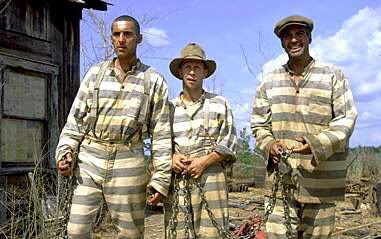There were giants on the bench in those days...

Just a quickie...the finest, most ornamental, filligreed, prolix and delightful example of legal wordsmithery since the Magna Carta. You'll laugh! You'll cry! You'll scratch your head as Justice Carlin of the New York Supreme Court denies relief to a woman and her two injured babies who were run over by a taxicab! Ladies, gentlemen, lingo-slingers of every stripe and persuasion, I give you Cordas v. Peerless Transportation Co., 27 N.Y.S. 2d 198 (N.Y. City Ct. 1941).
CORDAS et al.
v.
PEERLESS TRANSP. CO. et al.
City Court of New York, New York County.
April 3, 1941.
*199
Nicholas Athans and Hyman Muss, both of New York City, for plaintiff.
Louis L. Resnick and Harry P. Rich, both of New York City, for defendant.
CARLIN, Justice.
This case presents the ordinary man--that problem child of the law--in a most bizarre setting. As a lowly chauffeur in defendant's employ he became in a trice the protagonist in a breach-bating drama with a denouement almost tragic. It appears that a man, whose identity it would be indelicate to divulge was feloniously relieved of his portable goods by two nondescript highwaymen in an alley near 26th Street and Third Avenue, Manhattan; they induced him to relinquish his possessions by a strong argument ad hominem couched in the convincing cant of the criminal and pressed at the point of a most persuasive pistol. Laden with their loot, but not thereby impeded, they took an abrupt departure and he, shuffling off the coil of that discretion which enmeshed him in the alley, quickly gave chase through 26th Street toward 2d Avenue, whither they were resorting 'with expedition swift as thought' for most obvious reasons. Somewhere on that thoroughfare of escape they indulged the stratagem of separation ostensibly to disconcert their pursuer and allay the ardor of his pursuit. He then centered on for capture the man with the pistol whom he saw board defendant's taxicab, which quickly veered south toward 25th Street on 2d Avenue where he saw the chauffeur jump out while the cab, still in motion, continued toward 24th Street; after the chauffeur relieved himself of the cumbersome burden of his fare the latter also is said to have similarly departed from the cab before it reached 24th Street. The chauffeur's story is substantially the same except that he states that his uninvited guest boarded the cab at 25th Street while it was at a standstill waiting for a less colorful fare; that his 'passenger' immediately advised him 'to stand not upon the order of his going but to go at once' and added finality to his command by an appropriate gesture with a pistol addressed to his sacro iliac. The chauffeur in reluctant acquiescence proceeded about fifteen feet, when his hair, like unto the quills of the fretful porcupine, was made to stand on end by the hue and cry of the man despoiled accompanied by a clamourous concourse of the law-abiding which paced him as he ran; the concatenation of 'stop thief', to which the patter of persistent feet did maddingly beat time, rang in his ears as the pursuing posse all the while gained on the receding cab with its quarry therein contained. The hold-up man sensing his insecurity suggested to the chauffeur that in the event there was the slightest lapse in obedience to his curt command that he, the chauffeur, would suffer the loss of his brains, a prospect as horrible to an humble chauffeur as it undoubtedly would be to one of the intelligentsia. The chauffeur apprehensive of certain dissolution from either Scylla, the pursuers, or Charybdis, the pursued, quickly threw his car out of first speed in which he was proceeding, pulled on the emergency, jammed on his brakes and, although he thinks the motor was still running, swung open the door to his left and jumped out of his car. He confesses that the only act that smacked of intelligence *200 was that by which he jammed the brakes in order to throw off balance the hold-up man who was half-standing and half-sitting with his pistol menacingly poised. Thus abandoning his car and passenger the chauffeur sped toward 26th Street and then turned to look; he saw the cab proceeding south toward 24th Street where it mounted the sidewalk. The plaintiff-mother and her two infant children were there injured by the cab which, at the time, appeared to be also minus its passenger who, it appears, was apprehended in the cellar of a local hospital where he was pointed out to a police officer by a remnant of the posse, hereinbefore mentioned. He did not appear at the trial. The three aforesaid plaintiffs and the husband-father sue the defendant for damages predicating their respective causes of action upon the contention that the chauffeur was negligent in abandoning the cab under the aforesaid circumstances. Fortunately the injuries sustained were comparatively slight. Negligence has been variously defined but the common legal acceptation is the failure to exercise that care and caution which a reasonable and prudent person ordinarily would exercise under like conditions or circumstances. It has been most authoritatively held that 'negligence in the abstract, apart from things related, is surely not a tort, if indeed it is understandable at all.' Cardozo, C. J., in Palsgraf v. Long Island Railroad Co., 248 N.Y. 339, 345, 162 N.E. 99, 101, 59 A.L.R. 1253. In Steinbrenner v. M. W. Forney Co., 143 App.Div. 73, 127 N.Y.S. 620, 622 it is said, 'The test of actionable negligence is what reasonably prudent men would have done under the same circumstances'; Connell v. New York Central & Hudson River Railroad Co., 144 App.Div. 664, 129 N.Y.S. 666, 669, holds that actionable negligence must be predicated upon 'a breach of duty to the plaintiff. Negligence is 'not absolute or intrinsic,' but 'is always relevant to some circumstances of time, place or person.'' In slight paraphrase of the world's first bard it may be truly observed that the expedition of the chauffeur's violent love of his own security outran the pauser, reason, when he was suddenly confronted with unusual emergency which 'took his reason prisoner'. The learned attorney for the plaintiffs concedes that the chauffeur acted in an emergency but claims a right to recovery upon the following proposition taken verbatim from his brief: 'It is respectfully submitted that the value of the interests of the public at large to be immune from being injured by a dangerous instrumentality such as a car unattended while in motion is very superior to the right of a driver of a motor vehicle to abandon same while it is in motion even when acting under the belief that his life is in danger and by abandoning same he will save his life'. To hold thus under the facts adduced herein would be tantamount to a repeal by implication of the primal law of nature written in indelible characters upon the fleshy tablets of sentient creation by the Almighty Law-giver, 'the supernal Judge who sits on high'. There are those who stem the turbulent current for bubble fame, or who bridge the yawning chasm with a leap for the leap's sake or who 'outstare the sternest eyes that look outbrave the heart most daring on the earth, pluck the young sucking cubs from the she-bear, yea, mock the lion when he roars for prey' to win a fair lady and these are the admiration of the generality of men; but they are made of sterner *201 stuff than the ordinary man upon whom the law places no duty of emulation. The law would indeed be fond if it imposed upon the ordinary man the obligation to so demean himself when suddenly confronted with a danger, not of his creation, disregarding the likelihood that such a contingency may darken the intellect and palsy the will of the common legion of the earth, the fraternity of ordinary men,--whose acts or omissions under certain conditions or circumstances make the yardstick by which the law measures culpability or innocense, negligence or care. If a person is placed in a sudden peril from which death might ensue, the law does not impel another to the rescue of the person endangered nor does it condemn him for his unmoral failure to rescue when he can; this is in recognition of the immutable law written in frail flesh. Returning to our chauffeur. If the philosophic Horatio and the martial companions of his watch were 'distilled almost to jelly with the act of fear' when they beheld 'in the dead vast and middle of the night' the disembodied spirit of Hamlet's father stalk majestically by 'with a countenance more in sorrow than in anger' was not the chauffeur, though unacquainted with the example of these eminent men-at-arms, more amply justified in his fearsome reactions when he was more palpably confronted by a thing of flesh and blood bearing in its hand an engine of destruction which depended for its lethal purpose upon the quiver of a hair? When Macbeth was cross-examined by Macduff as to any reason he could advance for his sudden despatch of Duncan's grooms he said in plausible answer 'Who can be wise, amazed, temperate and furious, loyal and neutral, in a moment? No man'. Macbeth did not by a 'tricksy word' thereby stand justified as he criminally created the emergency from which he sought escape by indulgence in added felonies to divert suspicion to the innocent. However, his words may be wrested to the advantage of the defendant's chauffeur whose acts cannot be legally construed as the proximate cause of plaintiff's injuries, however regrettable, unless nature's first law is arbitrarily disregarded. Plaintiff's attorney in his brief cites the cases of Grunfelder v. Brooklyn Heights Railroad Co., 143 App.Div. 89, 127 N.Y.S. 1085, and Savage v. Joseph H. Bauland Co., 42 App.Div. 285, 58 N.Y.S. 1014, as authorities for a contrary holding. Neither case is apposite in fact nor principle. In the classic case of Laidlaw v. Sage, 158 N.Y. 73, 89, 90, 52 N.E. 679, 685, 44 L.R.A. 216, is found a statement of the law peculiarly apropos: 'That the duties and responsibilities of a person confronted with such a danger are different and unlike those which follow his actions in performing the ordinary duties of life under other conditions is a well-established principle of law. * * * 'The law presumes that an act or omission done or neglected under the influence of pressing danger was done or neglected involuntarily.' It is there said that this rule seems to be founded upon the maxim that self-preservation is the first law of nature, and that, where it is a question whether one of two men shall suffer, each is justified in doing the best he can for himself'. (Italics ours.) Kolanka v. Erie Railroad Co., 215 App.Div. 82, 86, 212 N.Y.S. 714, 717, says: 'The law in this state does not hold one in an emergency to the exercise of that mature judgment required of him under circumstances where he has an opportunity *202 for deliberate action. He is not required to exercise unerring judgment, which would be expected of him, were he not confronted with an emergency requiring prompt action'. The circumstances provide the foil by which the act is brought into relief to determine whether it is or is not negligent. If under normal circumstances an act is done which might be considered negligent it does not follow as a corollary that a similar act is negligent if performed by a person acting under an emergency, not of his own making, in which he suddenly is faced with a patent danger with a moment left to adopt a means of extrication. The chauffeur--the ordinary man in this case--acted in a split second in a most harrowing experience. To call him negligent would be to brand him coward; the court does not do so in spite of what those swaggering heroes, 'whose valor plucks dead lions by the beard', may bluster to the contrary. The court is loathe to see the plaintiffs go without recovery even though their damages were slight, but cannot hold the defendant liable upon the facts adduced at the trial. Motions, upon which decision was reserved, to dismiss the complaint are granted with exceptions to plaintiffs. Judgment for defendant against plaintiffs dismissing their complaint upon the merits. Ten days' stay and thirty days to make a case.









